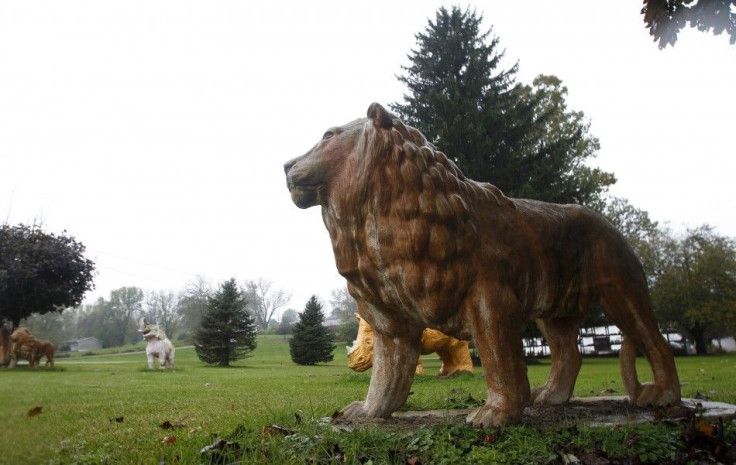Ohio Exotic Animal Escape Result of Gov. Kasich's Failure to Renew Existing Ban, Animal Activists Say

Following the release of a literal collection of lions, tigers, bears and wolves onto the streets of Muskingum County, Ohio on Tuesday, Gov. John Kasich is being called out by animal rights activists, who said the governor failed to renew a ban on exotic animals in April, making Ohio one of only eight states that does not regulate the private ownership of dangerous animals.
Before Zanesville resident Terry Thompson, 62, the owner of a 73-acre animal preserve with his wife, committed suicide on Tuesday, he reportedly released his collection of 56 exotic creatures -- which also included monkeys and leopards -- from their cages. Thompson had been released from federal prison only weeks before after serving a year for possessing illegal firearms. He was convicted of animal cruelty charges in 2005 and had multiple confrontations with the law over cruelty speculations.
Although local law enforcement officials claim they visited the Thompson farm on several occasions after receiving complaints, they legally could not do anything aside from making sure he had the proper permits for the animals, which he did.
While the U.S. Department of Agriculture's can prosecute animal cruelty charges under the Animal Welfare Act, the agency is limited to monitoring exotic animal owners who either breed certain species for commercial sale, or those who exhibit the creatures to the public.
Before former Gov. Ted Strickland left office last year, signed an executive order that restricted the ownership of exotic creatures, in addition to banning their sales and import. The order grandfathered in existing exotic animal owners, according to the Dayton Daily News, as long as they registered their animals with the state and has not been convicted of animal abuse charges.
Kasich Let Order Restricting Exotic Creatures Ownership Expire
Kasich let the order expire in April, claiming the plan -- which would have placed the Ohio Department of Natural Resources in charge of enforcing the ban -- would not work because the move exceeded the authority of the agency, which is limited to regulating only native species.
On Wednesday, Kasich claimed his administration has formed a working group to create legislation regulating the sale and ownership of unusual or dangerous animals.
We're going to allow this working group to move faster and at the end of the day there will be legislation, something enforceable and solve this, Kasich said on Wednesday, although he did not specify when exactly that would be.
During a press conference on Wednesday, animal handler and activist Jack Hanna, a member of the working committee, said he expects new regulations to be implemented in just six weeks.
However, Ohio Department of Natural Resources Interim Director Scott Zody told the Dayton Daily News that he hopes to have draft regulations and legislation ready for consideration by the end of this year.
Animal rights activists have pointed to the harm that has already resulted from Kasich's move to let the initial ban to expire. At least 49 of the escaped lions, bears and Bengal tigers were dead by Wednesday afternoon. Officials with the Muskingum County Sheriff's Department were force to kill many of the animals, telling several media outlets that some were too strong and aggressive to even tranquilize.
Sheriff Matt Lutz emphasized the danger of using nonlethal force in such circumstances while speaking to reporters on Wednesday. He said a veterinarian had tried to shoot a Bengal tiger with a tranquilizer dart that either missed or did not impact the animal, ultimately enraging it.
Public safety was my number one concern, Lutz said. We could not have animals running loose in this county, he said.
© Copyright IBTimes 2024. All rights reserved.











